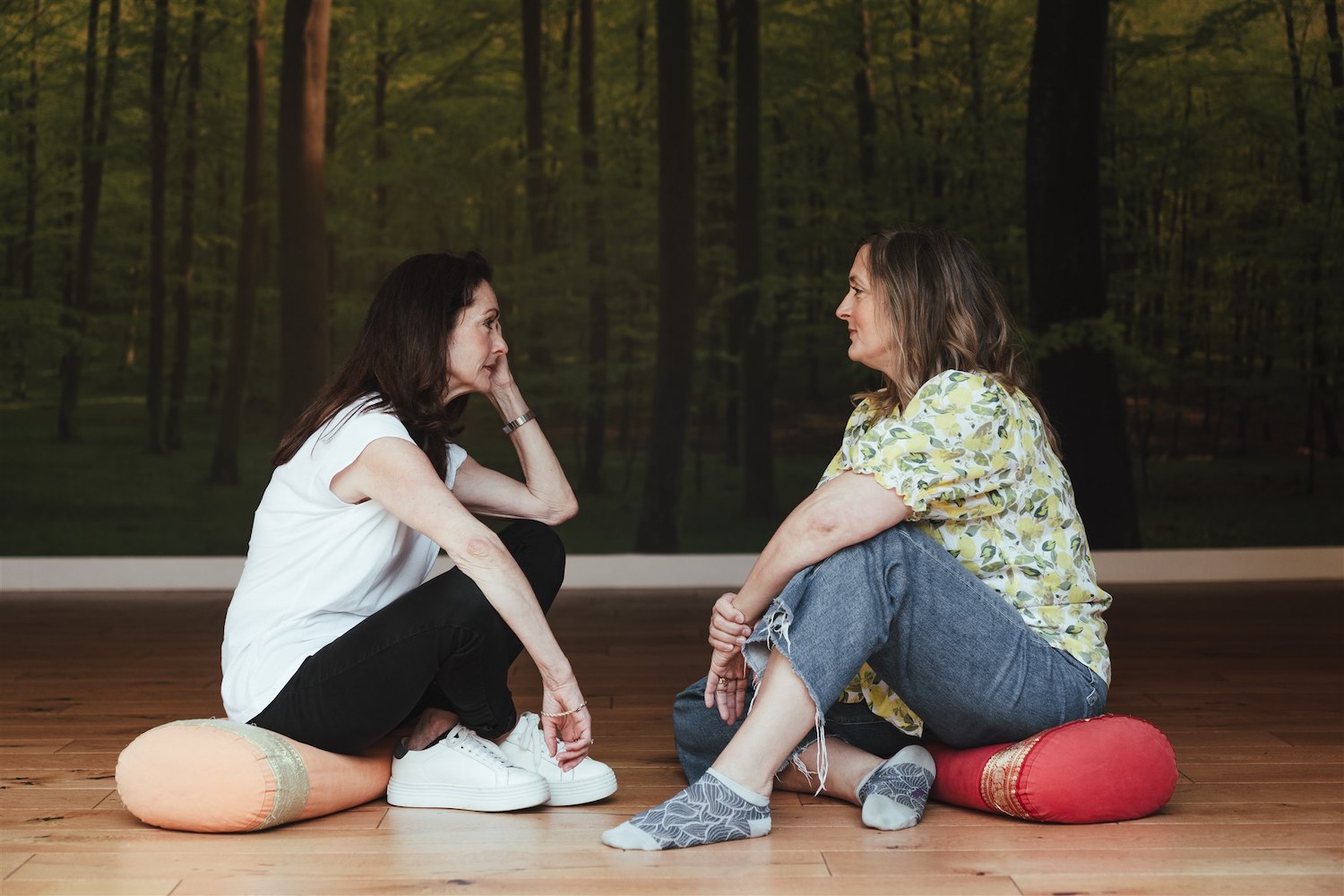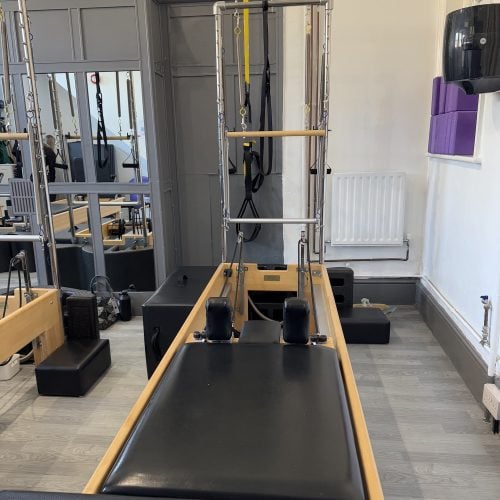What is Somatic Counselling and how can it help me?
Heard of Somatic Counselling? It’s a form of therapy that looks at the connection of mind AND body for holistic healing. We asked Lucy Parker, founder of a new counselling & coaching service, Embark, to tell us more and how it could help with everything from anxiety to low-mood…

There’s more than one string to the bow of Lucy Parker, the founder of FLOW Yoga in Tunbridge Wells, (Winner of Muddy Awards for Best Yoga Studio in Kent in 2018, 2019, 2021 AND 2022!)
Not only has Lucy gained over 15 years experience as a yoga, breath-work and meditation teacher – she’s also a trained and qualified counsellor, psychotherapist and coach. Now, Lucy is pulling all these talents together and has launched Embark a Counselling & Coaching service that offers therapy and support which can be done face-to-face or in remote Zoom sessions.
Perhaps not surprisingly given Lucy’s background, she’s specialises in Somatic Counselling – a form of body-centered therapy that looks at the connection of mind and body and uses both psychotherapy and physical therapies for holistic healing.
In addition to talking therapy, somatic therapy practitioners use mind-body exercises and other physical techniques to help release the pent-up tension that negatively affects a patient’s physical and emotional wellbeing. Sounds interesting? We asked Lucy to tell us more:
Q: Please can you explain a little bit more about Somatic Counselling?
A: We all understand that our bodies are more than taxis for our brains and so it’s curious that traditional counselling doesn’t take much interest in the body and explores the mind exclusively. We are multi-faceted and so a multi-faceted approach to mental as well as physical health seems sensible to allow a fully-rounded healing pattern to emerge.
Why do we tolerate the traditional medical model that divides us up into easily manageable pieces that are rarely put together as a complete picture? We might go to the doctor for our medical needs, to a counsellor for our mental health needs and to a church or religious group for our spiritual needs. When did parts of us all become auctioned off and why?
It’s a question begging to be asked and beginning to be answered by many forward-thinking practitioners in various fields from medicine, science, yoga, philosophy, and psychology. I like to think of myself as part of this progressive movement, seeking wholeness for every individual and looking at the bigger picture to do so.

Q: What is involved in a Somatic Counselling? Can you explain the process to me?
A: There’s a great new book by Dr Gabor Mate called The Myth of Normal where he argues that normal doesn’t exist. That’s how most contemporary psychotherapists or counsellors view things. That we are all individuals and however similar our experiences or life events might have been, our reactions, responses and subsequent behaviours might, or will, be very different.
So, the process, when you come to me for therapy, will be approached from that starting point. That you are an individual, potentially struggling with or wishing to understand your various drivers. I’ll be there to support you as you shine a light into both your past as well as your present to see what’s going on for you and how you might be able to better manage your circumstances or thinking.
You might not immediately see much difference between my approach and that of another therapist. However, I’ll be there to point out what I notice in your body as much as in your words and to keep your physical experiences as valid as those you think or talk about. That sick feeling in your belly, clammy palm, or tightness in your neck, in my mind, has something to say, a reason for being there. Together in the therapy room, we act as detectives to uncover what messages might be there for us to read into and learn from.

Q: What can I expect from a session?
A: As I have mentioned, the start of your therapy might feel the same as any other visit to a therapist. We will both be comfortably seated and both ready to talk and explore all dimensions of you.
You might come in with a very specific issue you want to better understand, a bereavement or other painful life event for example. Or you might want to shift a particular mood or prevailing experience you feel is affecting your life, such as anxiety or depression. The difference is ‘how’ we explore these things whilst allowing your body to speak in its own way, through its own unique language, as well as your mind.
We will investigate your emotions as well as your thoughts and dive into your gut intelligence, examining your instinctive urges and limitations. We will take a holistic view of you and together gain a more rounded perspective on what is going on for you and why.
During some sessions, talking might feel the only sensible approach to set the scene and establish the facts. We might then move into some grounding techniques of breath and body scanning to root you into the present moment and support your deeper dive into the unconscious.
We could explore some meditation techniques to steady your thoughts and shift your central nervous system, as well as brain waves, into a more peaceful and manageable pace. There might also be an occasional need or urge to stand up and move, to stretch, feel into or rest our bodies. Each and every stage will be discussed together and only incorporated into our sessions if and when you, as the client, feel totally on board and willing to explore with curiosity and courage.
Q: What kind of problems does it help?
A: I can’t think of a problem this won’t help with. It’s a fully-rounded holistic approach that looks at you as a unique individual and explores how you have come to be the very person you are now.
It might conclude with the very empowering realisation that you are perfect just as you are and there is no need to change. You might discover something hidden about yourself that offers a powerful insight into your responses and reactions, or you might approach the work through the coaching lens, seeking a new way to be and a new future vision.
The relationship between the client and therapist is of tantamount importance and discussing whether working together is benefitting you will be encouraged. I would like to add that some more complex, chronic mental health conditions such as bipolar or schizophrenia are better handled through the expertise of a medically trained and experienced psychiatrist.

Q: What are the benefits?
A: I am often heard saying these two words in my work as a teacher and therapist, ‘curiosity’ and ‘calibration’. I feel these two powerful qualities have benefitted me greatly over my life and carried me through all the rollercoaster highs, lows, twists, and turns of human existence.
I actively choose to be curious about myself: why am I thinking this, what made me do this, why am I happy/sad about this? Then I feel I have the ability to re-calibrate myself back to homeostasis, to balance where everything is more regulated, manageable and steady.
These qualities feel important to share and encourage in my clients. To help you, as a client to be curious about yourself and not shy away from the challenging, difficult, or equally awesome and powerful parts of yourself.
Q: I’m self-conscious and never done anything like this before – will I feel comfortable?
A: It is the primary job of any therapist to help you feel comfortable. It’s only through safety that we can surrender and surrendering our thoughts, feelings and innermost expressions is an act of bravery and courage.
I suggest you go slow, trust yourself and only take baby steps forward until you feel really secure to take a deeper dive into the hidden depths of your own inner landscape. None of us after all were born yesterday and it’s unhelpful, or even unsafe, to expect all our our protective defences to fall away instantly. Trust yourself and your feelings, allow the work to unfold and only go at the pace that feels safe and manageable.

Q: Does it work alongside other therapies / medication?
A: You will be asked to complete an assessment form before any work is begun and this will include questions about your medical history. Remember I, like most counsellors and psychotherapists, are not medically trained and so cannot, and certainly should not, offer any medical advice.
Should your form reveal anything that might raise a question or concern you’ll be asked to have a conversation with your GP before starting therapy.
Q: How many sessions will I need?
A: This will be an important part of our first conversation together. We might agree to contract for a certain set number of sessions, typically 12, meeting weekly. Alternatively, we might discuss a period of a few months, a season, or a school term.
However, it is equally possible that we agree to start and see how the work develops. We will agree not to end too abruptly and will regularly review where we are at, the changes or benefits noticed and where we might want to go next. I charge £80 per hour, and we will meet for the full hour, 60 minutes.
You may also like

















